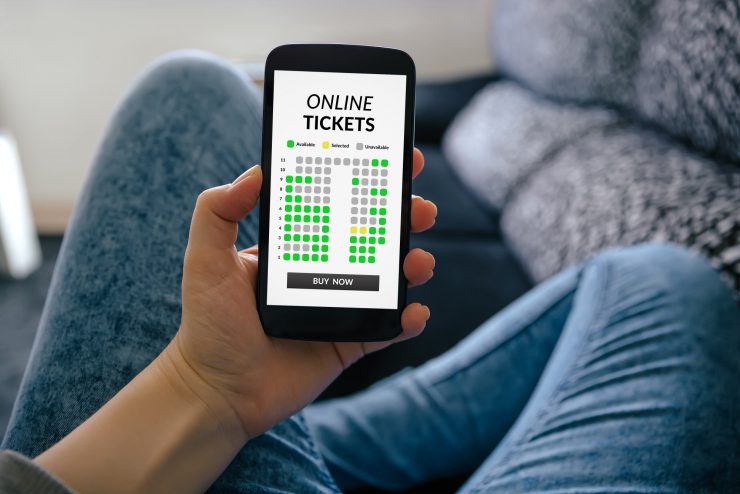Organizing an event is like corralling a room full of kittens: It takes nothing sort of a miracle to achieve. And for that reason, event planners are no doubt some of the most underappreciated workers in the industry. They spin webs of perfectly-tuned cogs in the event machine — organization, time-management, logistics…
When all is said and done, selling event tickets is one small component of the greater whole. And yet it’s the most important because an event cannot thrive without thralls of satisfied attendees. And if you’re in an online space, getting potential customers to even look at your tickets can be a challenge.
So what’s the best way to sell event tickets online? Well, we’ve got ten marketing strategies to help get you started. Here are essential tips for marketing your next company event.
1. Inclusive Ticket Types
A single ticket option may seem like the fairest deal for your eventgoers. But variable ticket types are the superior choice for marketing, revenue, and even the attendees. This trend is so effective that it’s been appropriated by other industries such as amusement parks and crowdfunding.
It all comes down to accessibility. Variable ticket options allow for a wider range of prices. The cheapest tickets may have basic features, but they’re available to those who lack the disposable income for anything more.
In short, inclusive pricing leads to more sales. It also provides invaluable data to your marketing team, as they can determine the most popular type of ticketing and pricing packages.
2. Limited Tickets
Event tickets follow the notion of supply and demand. With fewer tickets available, potential attendees will be willing to purchase them at a higher price. Displaying remaining tickets can create a sense of scarcity and urgency, compelling ambivalent attendees to make a decision.
This is best done through the use of tiered tickets types, discussed in the previous section. For example, you can offer increased price tiers for the same type of ticket. Once these are sold out, the second tier of tickets becomes available for a higher price.
This strategy is most common for music events, but any industry stands to benefit. It encourages attendees to purchase tickets as soon as possible, or else they’ll likely have to pay more for procrastinating.
3. PPC Advertisements
Since events are temporary, pay-per-click advertisements are best done one or two months in advance. Once the tickets are sold out or the event has concluded, simply end the PPC campaign. Target specific keywords relevant to your event, such as “Seattle tech conference.”
While such a term has a low search volume, you’ll enjoy a better conversion rate per click. After all, people searching for a “tech conference” may not be willing to travel to Seattle to attend one.
The conversation rate matters since anytime someone clicks on your PPC ad, you’ll have to pay regardless of what they do once they hit the landing page.
4. Retarget With Analytics
Your ticket checkout page commands a good deal of traffic. But not everyone who looks at a ticket goes through with the purchase. You can still convince them even once they’ve left.
Rely on your analytics software and tracking cookies. You can create specific PPC advertisements that appear for users who put a ticket in the checkout cart but decided against the purchase.
When these users browse other sites on the Google network, they’ll receive your PPC advertisements. Retargeted ads tend to offer unique discounts as an incentive to close on the final sale.
Since retargeted can be a tad costly, check out these cheap retargeting strategies.
5. Develop Leads
An online newsletter may sound antiquated, but it’s still one of the best ways to communicate new events and special discounts to your customers. The process usually starts with curated content creation.
Whether you’re running a high-quality blog or producing informative videos, your viewers will want to stay in-the-know. Add calls-to-action that encourages visitors to sign up for the newsletter.
Next time you launch tickets, send the notification to these visitors. Since they’re already interested in your content, your event will likely interest them, too. You can also convert attendees into leads once they arrive, broadening your event’s reach.
6. Find a Partner
Do you know another business that’d want to run a combined event? Partners can help you add more value to the tickets by offering their special panels and resources.
Plus, they have their own connections and marketing channels and thus bring additional customers along for the ride. Just remember that sharing an event space also means sharing ticket revenue.
7. Present Value
It’s time to start thinking about the tickets themselves. Outline what the event has to offer in terms of value. If you’re making use of tiered tickets, explain the differences between them in succinct language.
Most importantly, include an informative schedule. What panels or entertainment will be available at your event? Present a synopsis whenever possible and illustrate what attendees stand to gain by attending.
8. Event Footage
An agenda is a good start, but it can’t depict the soul or spirit of an event. It could appear somber on paper but have a thrilling atmosphere in-person.
For that reason, record snippets of the event. You’ll want to publish them on your website or YouTube channel. If it’s annual, you can include the video link on the ticket page when the next event rolls around.
High-quality recap videos clear up uncertainty surrounding the event and can convert ambivalent customers.
9. Special Offers
Whenever possible, incorporate discounts throughout the payment process. Is a customer buying several tickets? Discount.
Referring to a friend? Discount. Subscribed to your newsletter?
You get the picture.
These offers can sweeten an already-tempting ticket and create goodwill towards your company. In turn, happy customers will be more likely to attend future events and recommend them to their friends.
Check out this article to determine which discount strategies will work best for your company.
10. Onsite Tickets
As important as online sales are, selling last-minute tickets onsite is still a lucrative business. Maybe an attendee brought a friend along and they’d like to snag a ticket at the door. When you’re running an event with thousands of visitors, these situations happen.
Make the most of them with mobile ticketing software. In addition to checking in attendees at the door, you can use the mobile app to effortlessly sell tickets in-person.
The Best Way to Sell Event Tickets Online
Incorporating all ten of these strategies can forge an influential outreach strategy that promotes customer satisfaction and encourages ticket sales. When you’re selling event tickets, especially online, it’s all about reach and accessibility.
Does your company have event ticket software that meets the demands of your business?
Utilize our event ticketing software for all your management and sales needs. Eventzilla is the best way to sell event tickets online. Sign up today and take advantage of robust payment processing, on-site registration, powerful analytics, and more.







